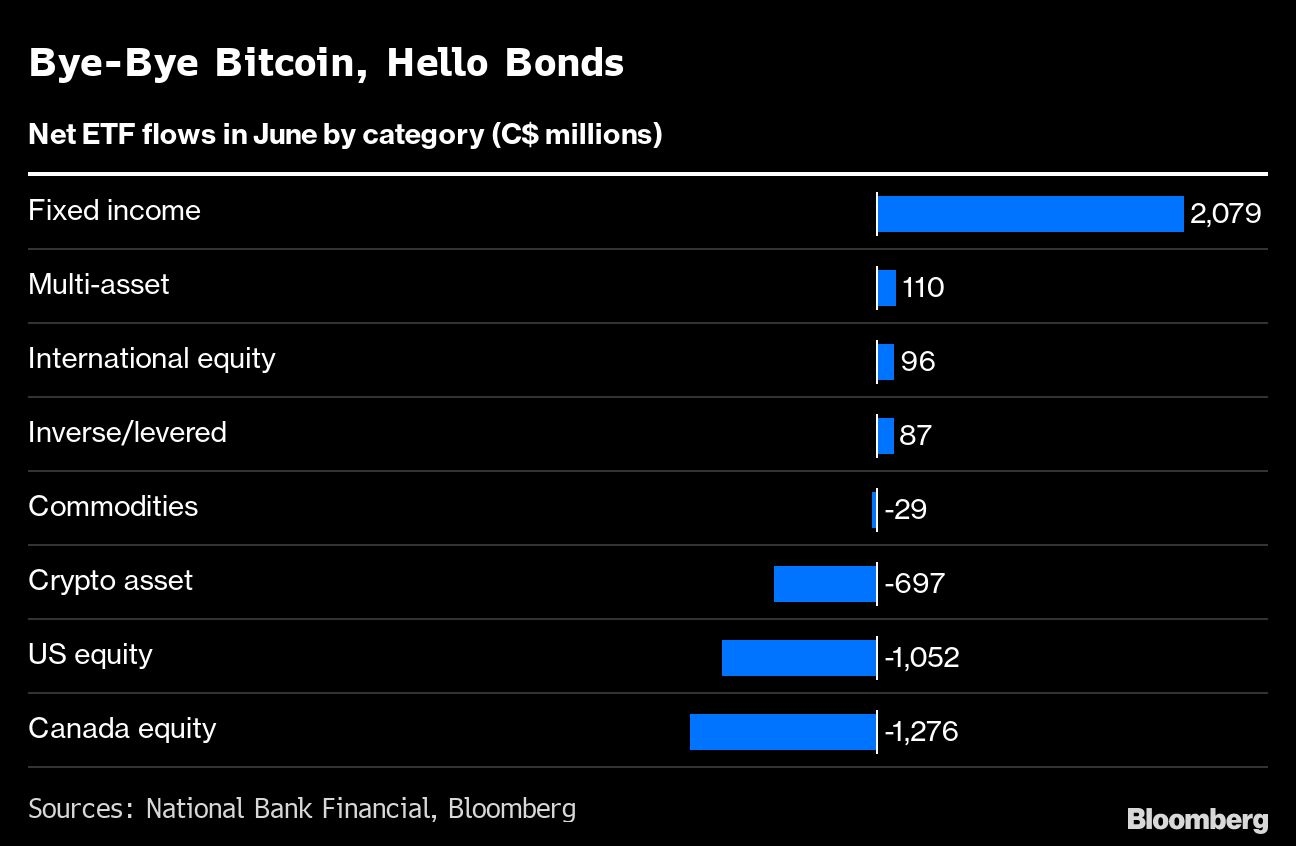BlackRock, crypto ETFs bleed in biggest Canadian outflow in years
, Bloomberg News
Canadian exchange-traded funds suffered their biggest monthly outflows since 2013 as investors dumped equity and cryptocurrency funds to escape a brutal selloff.
In a country that was early to embrace crypto exchange-traded funds, investors have abandoned them quickly. Crypto asset ETFs “faced sudden outsized redemptions” and saw nearly $700 million in net outflows in June, about 16 per cent of assets under management, National Bank Financial analyst Daniel Straus said in a report.
Equity ETF outflows came primarily from investors selling Canadian and US index funds. Total outflows for all Canada-listed ETFs were $682 million in June, the first monthly decline in three years.
RBC iShares, an alliance between Royal of Bank of Canada and BlackRock Inc., was hit with the biggest loss, more than $1 billion in withdrawals. An iShares fund that tracks Canada’s large-cap S&P/TSX 60 Index was hit with $719 million in outflows, or about 6 per cent of assets.

Investors poured $2.1 billion into fixed income ETFs during the month -- despite the terrible performance of bonds so far in 2022 -- “perhaps in expectation of a reversal in trend if central banks would be able to orchestrate a ‘soft landing,’ or to make strategic allocations as the yields on bonds finally start to make sense,” Straus said. Inflows into ESG-labeled funds were $292 million during the month.
Global equities and cryptocurrencies have plunged this year as soaring inflation and tighter monetary policy have triggered deep anxiety about a coming recession. The MSCI World Index has dropped 21 per cent this year and the S&P/TSX Composite Index has fallen more than 11 per cent.
July 9, 2022
CNA – Global rules would allow central bank digital currencies to operate smoothly cross-border and speed up wholesale payments, a think tank backed by the City of London Corporation said yesterday.
Most central banks, including the Federal Reserve, the Bank of England and the European Central Bank, are studying the potential launch of a digital version of their currencies.
Britain has said any digital version of sterling would not be available under the second half of this decade, while the Fed has said a digital dollar could help maintain the greenback’s international standing.
“Key to realising the full potential of CBDCs is ensuring that they can operate across different markets to facilitate wholesale cross-border payments,” said Chair of the International Regulatory Strategy Group (IRSG) Kay Swinburne, a think tank backed by the City and TheCityUK.
“Global regulatory principles and collaboration will be needed to realise this vision.” The IRSG said in a report published yesterday there are many benefits to including CBDCs in wholesale digital payments if they are made “interoperable” for cross-border transactions.
Harmonisation of rules would allow firms who are licensed in one jurisdiction to provide services in another, and stop countries trying to undercut each other with laxer rules, the report said.
No comments:
Post a Comment